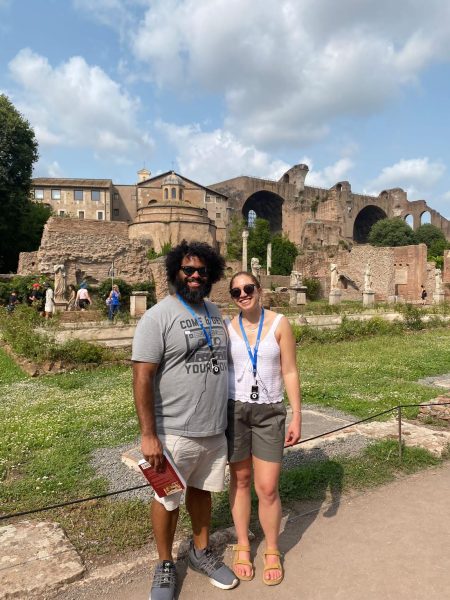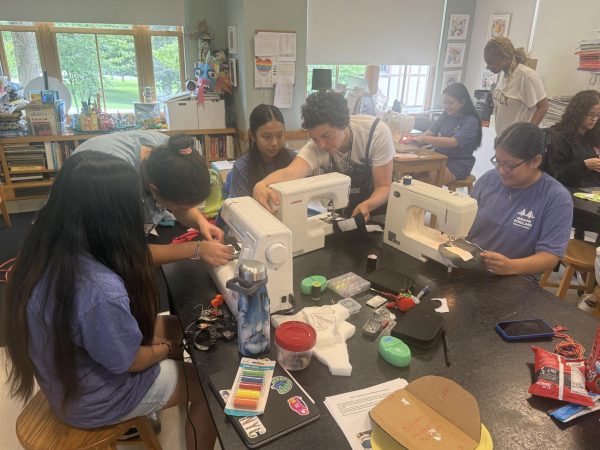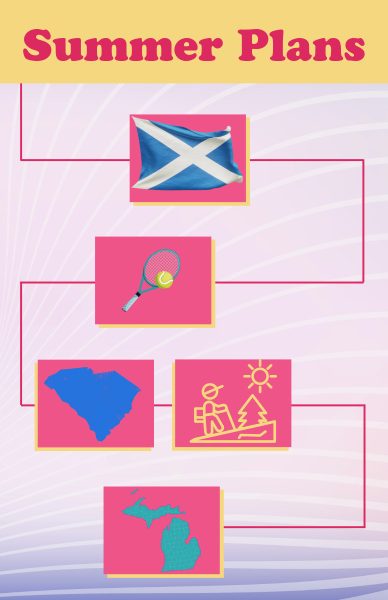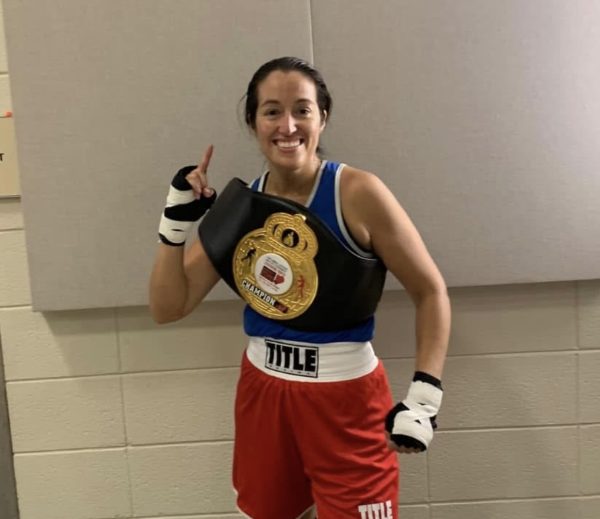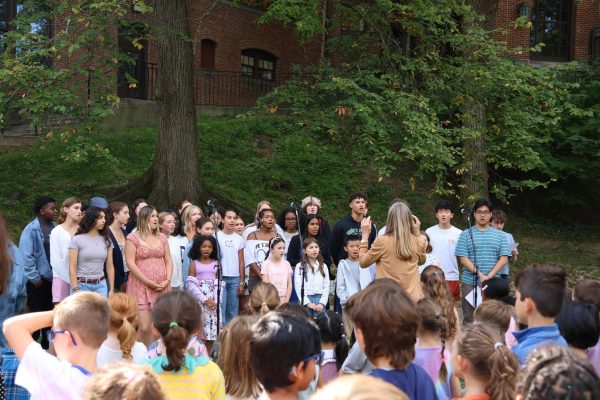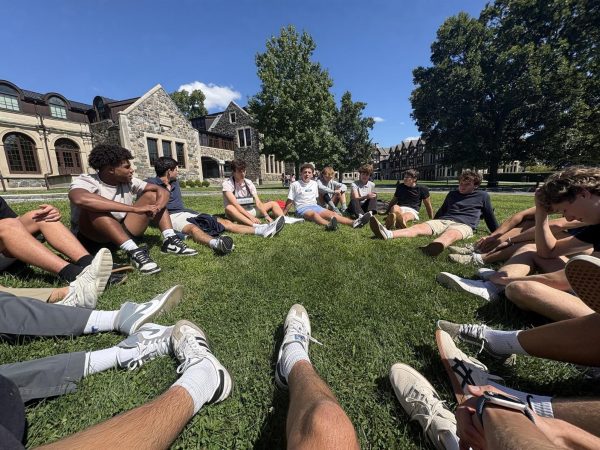New Mason Bees Arrive in Hackley’s Pollinator Garden
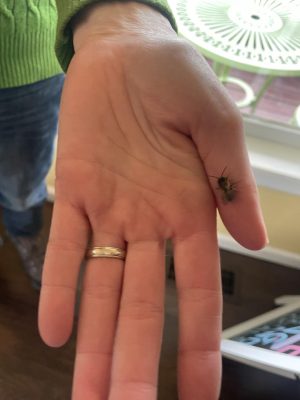
Laura Khlare, the owner of Blossom Meadow Farm, where Hackley’s mason bees came from, shows a male bee in her hand. Mason bees are much smaller than other bees and non-aggressive.
Buzz Buzz! Have you heard the news about the new mason bees in Hackley’s pollinator garden?
On April 1st, Ms Johnson and seniors Ella Rodriguez and Mateen Nassirpurour, the leaders of the Pollinator club, traveled to Cutchogue, Long Island to pick up their precious cargo. The bees came from Blossom Meadow farm, a local farm run by Laura Khlare, a retired marine biologist and current “bee rancher,” as she calls it.
Ms. Khlare is at the forefront of a movement promoting native pollinators as opposed to the more traditional and well-known European honey bee. Though the honey bee and its struggle with declining populations are definitely essential, all too often it overshadows the significance of native bees such as the mason bee.
Wild bees are far more effective pollinators than honey bees. A study conducted at Cornell University found that native bees are two to three times better pollinators than honey bees. Ms. Khlare even gave a TEDx talk about the significance of these native superheroes.
In particular, mason bees are extremely efficient and unique pollinators. Much smaller than their relatives, mason bees are solitary insects that don’t live together in a communal hive. Additionally, mason bees do not make honey but devote their undivided efforts to pollination. Mason bees are some of the first bees to emerge in early spring and lay their eggs in empty tunnels such as plant reeds.
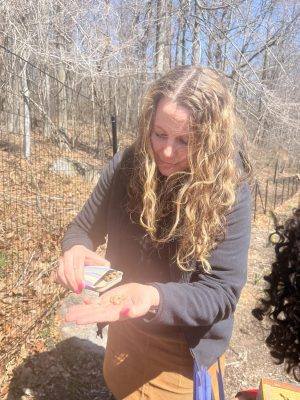
Ms. Johnson displays some baby mason bees before they hatch to the Advanced Forest Ecology Research class. Mason bees are some of the first bees to hatch in the spring, and some have already begun to emerge in the pollinator garden.
Ms. Johnson and the pollinator club received around 50 bees and placed them in the pollinator garden’s bee houses stuffed with dried phragmites reeds. The mason bees have already begun to hatch and pollinate flowers around the Hackley campus.

